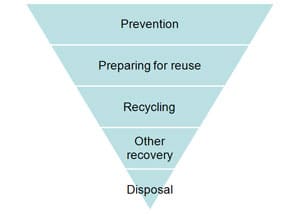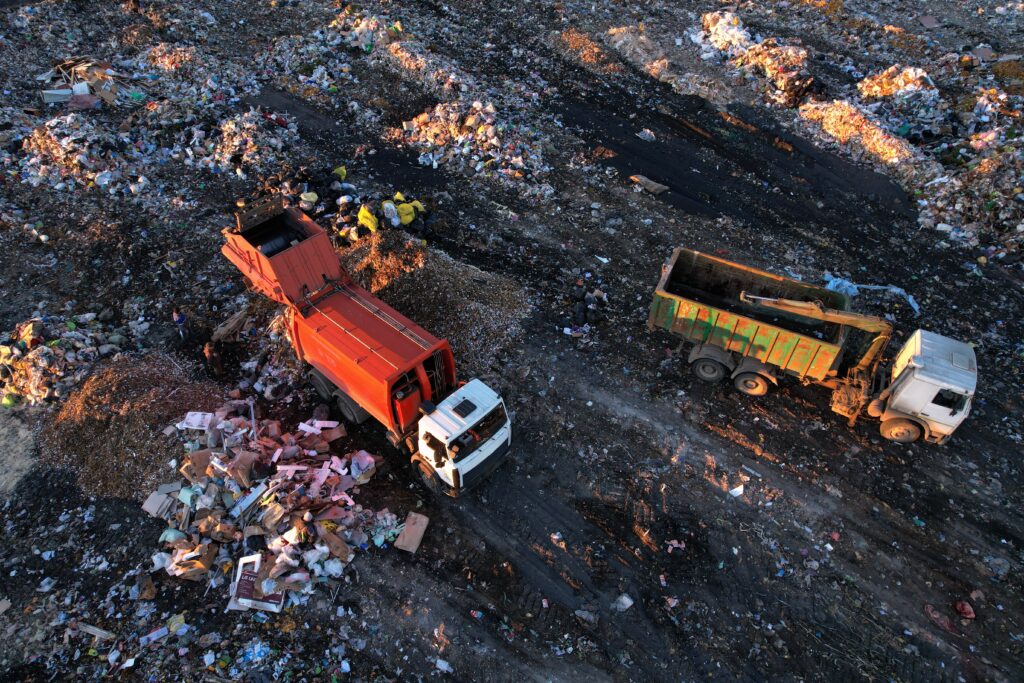The Department for Environment, Food and Rural Affairs (Defra) is set to revise its guidance on how businesses and other organisations should adhere to the waste hierarchy.
At a workshop on Friday (May 11) Defra said that it was gathering feedback from stakeholders in order to help those who handle waste how to understand and drive waste up the hierarchy.

The deadline for feedback is June 30 2012 with the new guidance expected to be published by the end of the year.
Under the Waste Framework Directive, which was brought into domestic law through the Waste (England and Wales) Regulations 2011, businesses have a legal obligation to consider the five step waste hierarchy when handling their waste. The five steps of the hierarchy, in order of descending priority, are: prevention, preparation for reuse, recycling, other recovery (such as incineration) and disposal.
At present businesses only have to tick a box on a waste transfer note to confirm that they have fulfilled their duty to apply the waste hierarchy however the government is keen to raise awareness of the hierarchy and make it more than a tick box exercise. It was highlighted at the workshop that some people fill out the transfer note without fully understanding what it means.
Guidance
Original guidance to applying the waste hierarchy was first published in June 2011 (see letsrecycle.com story) and outlines how the hierarchy applies to a range of common materials and what businesses and public bodies need to do to comply with it.
The current guidance uses life cycle assessments to analyse the environmental impacts associated with certain materials. These are assessed against their potential impact on climate change, air quality, water quality and resource depletion. Defra has said the new guidance will incorporate this along with other forms of life cycle thinking including ecological foot-printing.
Defra is also calling for evidence from businesses to help offer clarity in areas where the Welsh and English guidance differs. For example, the English guidance puts landfill above energy recovery for plastics in terms of the emissions released through the process but states that landfill remains at the bottom of the hierarchy for plastics based on other environmental factors.
Another point of difference is that the English version puts the composting of paper and card above energy recovery, whereas the Welsh version does not.
Defra
At the workshop, Ali Scoleri, policy advisor at Defra, said: Defra issued guidance a year ago which was a summary document. To accompany this we developed with WRAP [Waste and Resources Action Programme] an online tool for businesses where we identified a number of waste streams which can be handled better and how to drive them up the hierarchy.
We are reviewing it and to do this Defra has appointed a panel of experts to gather evidence to understand how best to design this guidance along with the online tool so that it is useful to businesses.
The panel reviewing the guidance consists of both independent specialists and scientists from Defra, the Department of Energy and Climate Change (DECC), the Environment Agency and the Welsh Government.
However Ms Scoleri said that while it is important to drive waste up the hierarchy other environmental factors need to be taken into account meaning that some materials may not deviate from it. For example, when using life-cycle analysis, evidence suggests that dry anaerobic digestion is a more beneficial method of treating organic waste than composting, despite being lower down the hierarchy.
Workshop
The workshop was attended by representatives from businesses, community organisations, Defra and the Environment Agency.
Speaking at the workshop, Alan Holmes, senior advisor at the Environment Agency, highlighted the fact that everyone has a role to play in making sure the hierarchy is applied.
He said: We all have roles to play in delivering the waste hierarchy: The government in terms of setting the guidance and policy; the local authorities and the Environment Agency in influencing it; and the producers in terms of driving waste up the hierarchy.
Related links
Mr Holmes added that the Agency will continue to play its part to make sure the law is followed.
Following discussions, those who attended the workshop said that better guidance was needed in terms of what is considered best in terms of recycling, for example, closed or open loop. Attendees also called for clearer guidance of the definition of pre-treatment of waste before it is sent to landfill and said that sector specific guidance could be helpful.








Subscribe for free